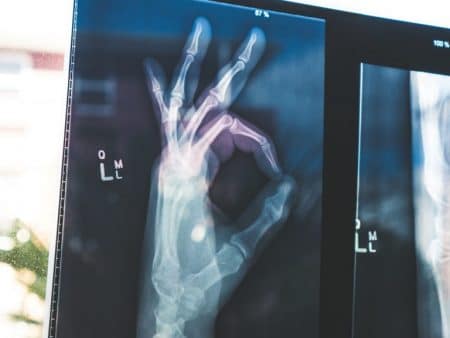Beware How Stress Affects Middle-Aged Men’s Health

Women and men react differently to stress, and it can manifest with different symptoms according to gender. This article discusses how stress affects middle-aged men’s health and advice for dealing with stress.
More on the Fight or Flight Response
Stress activates the fight or flight response in both genders. Consider it as an emergency mode where the body redirects energy reserves to core muscles.
The fight or flight response should be a temporary condition. During the period when humans were still hunting and gathering, a healthy stress response would be useful in escaping a dangerous predator.
The “fight or flight” response is often noticeably more apparent in a male under stress, while women tend to reign in their emotions and respond with less aggression.
The stress response in modern man produces the same physiological effects as it did in our ancestors. Non-essential systems such as the immune and reproductive systems are shut down, and core muscles groups have access to more energy which can be used for either fighting or making a quick escape.
In a busy office environment, high stress becomes a way of life. Of course, fighting and running are frowned upon in the modern work environment. The body has no way to burn through the high levels of cortisol – a hormone released during high levels of stress, and it’s continued presence can lead to chronic stress.
Three Ways Stress Affects Men’s Health
While stress can manifest similar symptoms within both genders, there are some stress-related health issues which are peculiar to men.
1. Stress Can Affect Sperm and Offspring Development
If you plan on being a father in the future, destressing should take a priority. Research has revealed that stress can result in changed gene expressions in a father’s sperm and manifest as a muted reaction to stress in the offspring.
Tracy L. Bale, Ph.D., the lead researcher on the study reported in an interview that “These findings suggest one way in which paternal-stress exposure may be linked to such neuropsychiatric diseases.”
2. Prostate Cancer Development
Studies on mice have indicated that chronic stress may increase the development of prostate cancer. The research suggests that if stress could be reduced in more of the human male population, it could result in a reduced incidence of prostate cancer in the community.
Studies conducted at the University of California also show promising results in improving the lives of people dealing with prostate cancer.
3. Lower Sperm Count
Stress and anxiety may have critical roles in reducing male fertility. Study results reported by Reuters Health indicate that stressed males had a lower sperm count and concentration than men who said they were not stressed.
Further to this, the studies also correlated with deformed, less mobile sperm in stressed males.
Advice for Men on Dealing with Stress
Statistically, men have shown that they are less likely to report on their emotional symptoms of stress, and they are also less likely to seek help with stress prevention and treatment. Warning signs which may indicate a male is suffering from high levels of stress include:
- Inability to concentrate
- Fatigue
- Tiredness
- Social withdrawal from family and friends
- Reduced sexual desire
- Excessive drug use or drinking
Men are vulnerable to severe health conditions which are more likely to develop when they are chronically stressed. It’s vital that men be mindful of managing stress, devise strategies to avoid it, and seek help when needed.
A few ideas for managing stress and mitigating its effects include eating well, practising mindfulness, and regular exercise. A consultation with your doctor is always advisable for learning about the latest developments in stress management.
To improve your health, I recommend you to read 3 Proven Health Strategies For Men Over 50.






